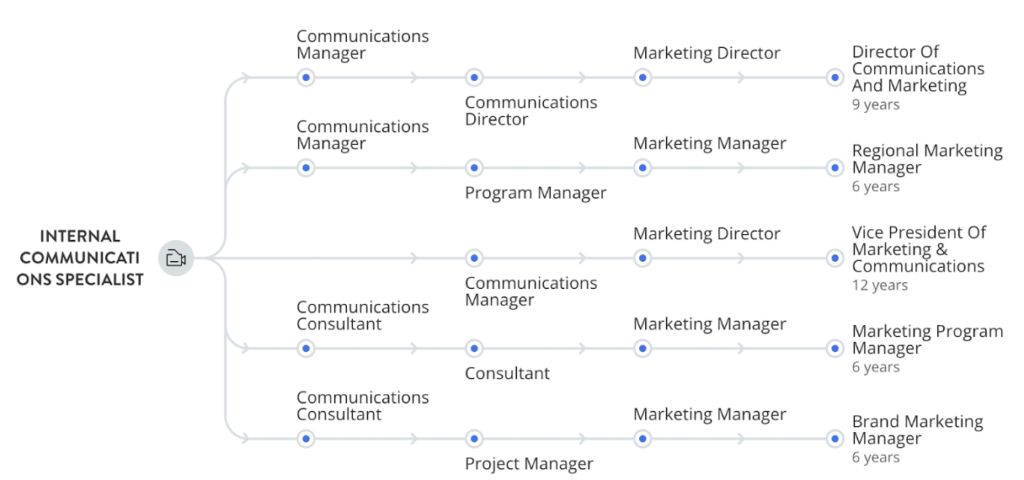Roles of an Internal Communicator:
The role of an Internal Communicator (IC) is vital in ensuring effective communication and fostering a sense of unity within an organization. Here are some key responsibilities and roles of an Internal Communicator:
Internal Events Management: ICs play a crucial role in planning, organizing, and managing internal events, ranging from team-building activities to company-wide meetings. They ensure that these events run smoothly, engage employees, and contribute to building a positive company culture.
Employee Engagement: ICs are responsible for promoting employee engagement within the organization. They develop and implement strategies to keep employees informed, motivated, and connected to the company’s vision and goals. This includes creating internal newsletters, intranet content, and other communication channels to share important updates and information.
Content Creation: ICs are responsible for creating and curating internal communication content. This includes writing engaging articles, producing videos, designing visual materials, and leveraging various communication platforms to convey key messages effectively.
Feedback and Measurement: ICs gather feedback from employees through surveys, focus groups, or other means to assess the effectiveness of internal communication initiatives. They use this feedback to refine strategies, improve communication processes, and measure the impact of their efforts on employee engagement and organizational success.
To become a successful Internal Communicator, you will need:
Excellent Communication Skills: Strong written and verbal communication skills are fundamental for an Internal Communicator. They should be able to convey information clearly, concisely, and effectively to different audiences within the organization.
Active Listening: An Internal Communicator must be an active listener, paying attention to others’ perspectives, concerns, and feedback. This skill helps in understanding the needs and expectations of employees, fostering open and honest communication.
Writing and Editing: Strong writing and editing skills are crucial for creating engaging content, such as internal newsletters, memos, and other communication materials. The ability to convey complex information in a clear and concise manner is essential.
Interpersonal Skills: Building positive relationships with stakeholders is vital for an Internal Communicator. They should have strong interpersonal skills to collaborate effectively with colleagues, leadership, and employees across different departments.
Emotional Intelligence: Emotional intelligence enables an Internal Communicator to understand and empathize with others’ emotions and perspectives. This skill helps in handling sensitive situations, resolving conflicts, and fostering a positive work environment.
Adaptability: The ability to adapt to changing circumstances, priorities, and communication needs is crucial for an Internal Communicator. They should be flexible and open to new approaches and technologies.
Internal Communicator Career Path and Opportunities:
Based on Zippia, a platform that offers career guidance and resources to job seekers, here are potential career paths for Internal Communications Specialists. As individuals advance in their careers, they may find themselves assuming greater responsibilities or even transitioning into leadership positions. By referring to Zippia’s career map, internal communications specialists can identify their career objectives and navigate their career progression. For instance, they might begin as a communications manager, advance to the role of communications director, and eventually reach the position of director of communications and marketing.

Story of an Internal Communicator at NAL Solutions:
Meet N.Tuệ Mẫn, a member of the Internal Communications (IC) team at NAL Solutions. The role of IC at NALS goes beyond communication, requiring someone who can bridge connections among all members of the company. N.Tuệ Mẫn, shifting her career aspirations from education and the Japanese language, has immersed herself in the IC role for nearly a year. With passion and a wealth of diverse experiences, she has acquired a range of skills through learning and active participation in many activities. Her wholehearted dedication to fulfilling the responsibilities of internal communication has made her a true asset to the organization.
NALS recognizes the role that IC plays in the success of every event, and in shaping the company culture. N.Tuệ Mẫn has contributed immensely to building strong bonds between employees and leadership, fostering connections between all departments, and nurturing a sense of unity among team members. Drawing inspiration from NALS’ culture of “open mind, open heart, open will,” she constantly striving to become a multitasking IC who brings exceptional value to the organization.
N.Tuệ Mẫn has discovered and honed three crucial qualities that define a successful IC. First and foremost, multitasking ability is a must for any IC. Secondly, flexibility and creativity, to adapt seamlessly to a variety of situations that arise. Lastly, N.Tuệ Mẫn demonstrates attentive listening and a deep understanding of her colleagues’ needs, fostering a strong sense of connections within the organization. N.Tuệ Mẫn’s success story exemplifies the profound impact an IC can have on a company’s growth and harmony.
Read the related article: Get to know the PQA role at NAL Solutions



